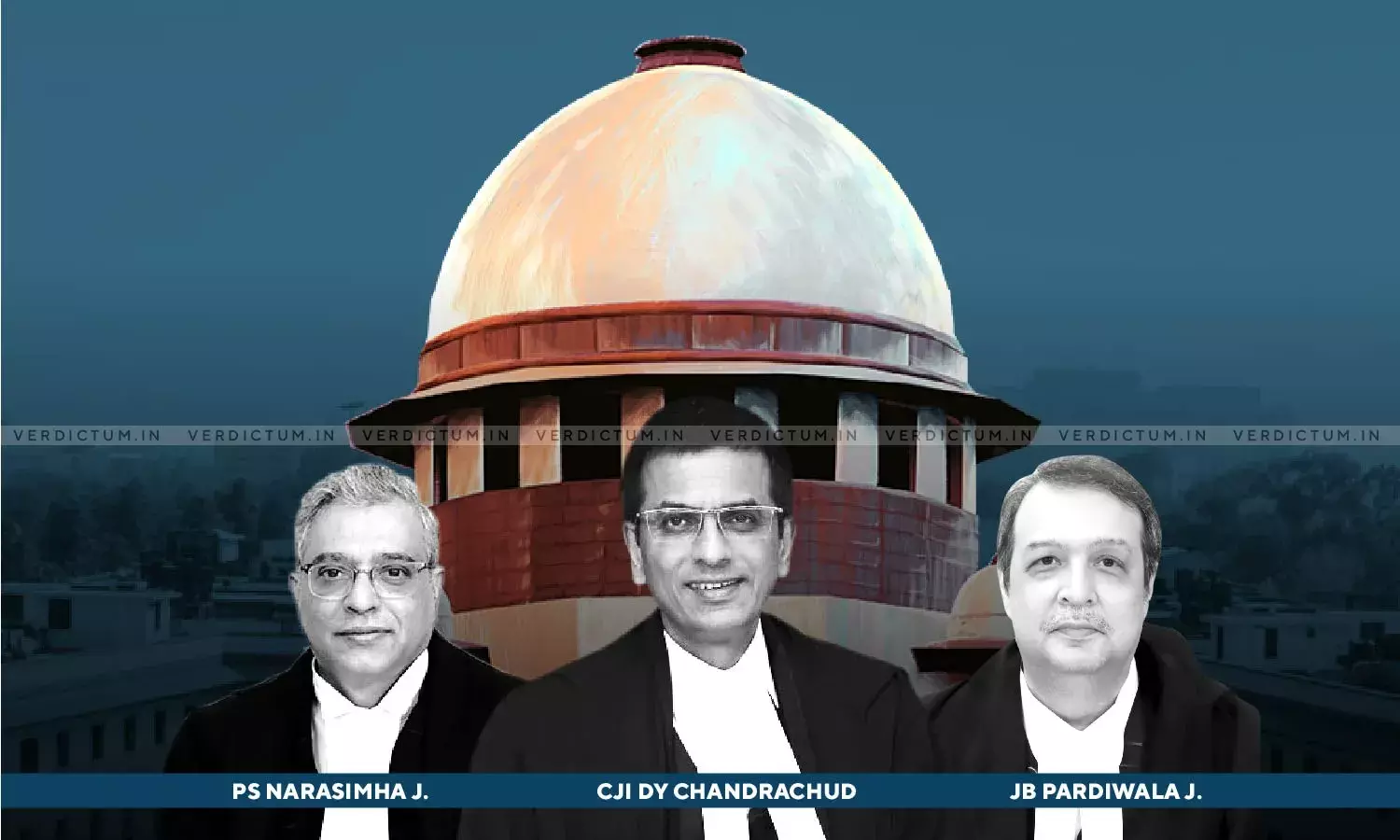Nominated Members Cannot Vote in MCD Mayoral Election: Supreme Court On Plea Of AAP Candidate Shelly Oberoi

The Supreme Court today has held that the nominated Members of the Delhi Municipal Corporation cannot vote for the elections to the post of Mayor, Deputy Mayor or Standing Committee.
The ruling of the Court came on the plea filed by AAP leader Shelly Oberoi's challenging the non-adherence of the timeline and conferment of voting rights on elected members in the Mayor’s election of the Municipal Corporation of Delhi (MCD).
"The Notice for the first meeting of the Corporation shall be issued within 24 hours. The Notice shall fix the date for which elections shall be conducted", further ordered a Bench comprising of Chief Justice DY Chandrachud, Justice PS Narasimha and Justice JB Pardiwala.
On the question as to whether the simultaneous elections to the post of Mayor, Deputy Mayor and Members of the Standing Committee may be conducted, the Court, in view of the Regulations of the Corporation, has held that "election of Mayor is to conducted first and once, the Mayor is elected, the elected Mayor shall be the presiding authority for the election of deputy mayor".
The Court categorically said that in the first meeting of the MCD, the election shall be held for the post of Mayor and in that meeting the nominated members shall not have the right to vote. After the election of the Mayor, the elected Mayor shall be the presiding authority for the election of the Deputy Mayor and Standing Committee, in which prohibition on right to vote on nominated members shall continue.
Senior Advocate Abhishek Manu Singhvi, appearing on behalf of Aam Aadmi Party and its leader Shelly Oberoi, submitted before the Court that Article 243R of the Constitution provides that the nominated members shall have no right to vote and such is also mirrored in the Delhi Municipal Corporation Act, 1957."The Constitution makes a difference between elected and nominated member", he said.
Additional Solicitor General Sanjay Jain, appearing on behalf of MCD, said that in terms of Section 35 of the Delhi Municipal Corporation Act, which is a special provision carved out for the election of Mayor, nominated members can vote in the first meeting. "The meeting of corporation is different from first meeting", he replied to the Court while referring to provisions contained under Section 82 of the Act when asked, "Tell us in terms of Article 243R of the Constitution of India, can alderman vote?"
Solicitor General Tushar Mehta who appeared for Lieutenant Governor of Delhi said that "in the election under Section 35, because it is not decision, all members (including nominated members) will participate".
However, the Court was not impressed with the arguments advanced by the respondents and said that Alderman cannot vote and its the basic principle of democracy.
In the previous hearing on Monday, the Supreme Court had asked the office of the Delhi Lieutenant Governor to postpone the election scheduled for February 16, as it posted the matter for hearing on February 17.
On February 08, the Supreme Court issued notice on the plea of AAP's mayoral candidate after MCD elections were postponed for 3rd time.
"Nominated members cannot go for election. The constitutional provision is very clear", observed a bench led by CJI DY Chandrachud.
Senior Advocate Abhishek Manu Singhvi said that there exists a “shocking state of affairs” in MCD and “the urgency is extreme”. He apprised the Court that in terms of Article 243R of the Constitution, nominated members are not allowed to vote, yet they were allowed to vote to prevent ruckus.
Further, he submitted that presently, the meeting of the Corporation is presided by pro tem and the pro tem presiding officer is herself illegal as she is not the senior most. The Senior Advocate said that holding elections of Mayor, Deputy Mayor and Members of the Standing Committee together runs contrary to the scheme of the Delhi Municipal Corporation Act, 1957.
The Court issued Notice after recording the following threefold submissions:
1. Though elections were conducted on December 4, 2022, the situation at present is that no election has been conducted thereafter for mayor, deputy mayor and members of the standing committee.
2. Article 243R says that nominated members shall not have a right to vote.
3. In terms of Section 76 of the Delhi Municipal Corporation Act, 1957, the Mayor or in his absence, the Deputy Mayor, has to preside at every meeting of the Corporation. Simultaneous holding of elections for three posts ( Mayor, Deputy Mayor and Members of the Standing Committee) is contrary to the provisions of the statute.
In her plea, Shelly has sought directions to ensure that the election of the Mayor is conducted in a time-bound manner, and to ensure that the nominated members are not allowed to vote.
Though poll results were declared nearly two months ago, the election to the post of Mayor has not yet been completed. In the civic body’s election, AAP had secured 134 of the 250 wards in the MCD, while the Bharatiya Janata Party(BJP) was limited to 104 wards.
The position of mayor wielded a lot of influence and carried huge prestige till 2012 when the corporation was split into three separate civic bodies- North, South, and East municipal corporations, with each having its own mayor. However, last year, they were reunified and the Municipal Corporation of Delhi (MCD) again came into existence.
The post of mayor in the national capital sees five single-year terms on a rotation basis, with the first year being reserved for women, the second for the open category, the third for the reserved category, and the remaining two again for the open category. Delhi will thus get a woman mayor this year.
Cause Title- Shelly Oberoi & Anr. v. Office of Lieutenant Governor of Delhi & Ors.

